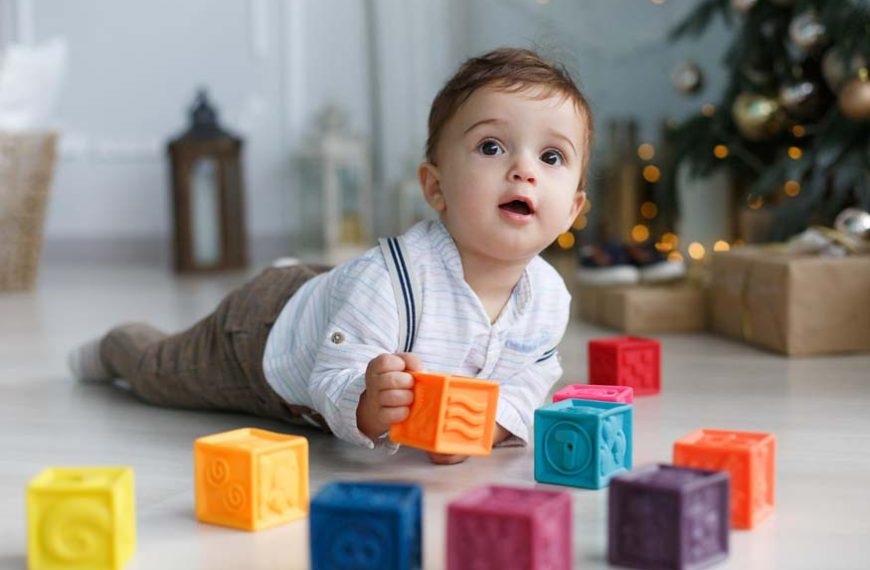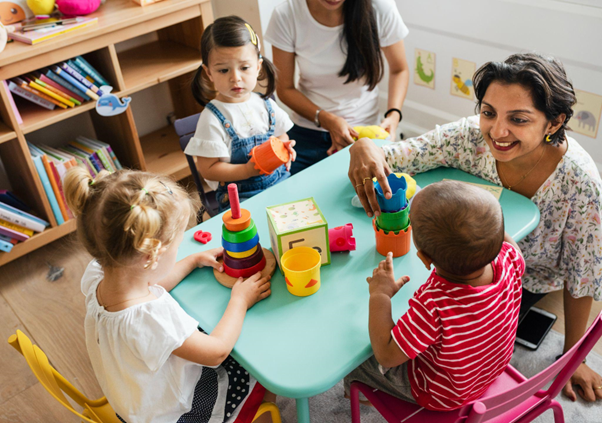Within days of entering the world, your newborn already expresses hints of their one-of-a-kind personality through their movements, gazes, cries, and reactions to stimuli. Tuning into these initial cues allows you as a parent to begin glimpsing the distinctive individual your baby is becoming underneath their still-developing abilities. Carefully observing patterns in how your infant responds to and engages with people and situations reveals innate attributes and inclinations taking root within them. Getting acquainted with your baby’s emerging personality during their first months fosters an insightful bond while also informing how you can best nurture their blossoming traits and support their growth. Through sensitivity to your baby’s expressions and natural dispositions from the start, you position yourself to respond to the unique person they are destined to be.
Innate Traits vs Learned Behaviors:
It is important to recognize that some of your baby’s personality traits are innate, while others develop over time through nurture and environmental influences. For example, the tendency toward shyness or high activity levels is likely more inborn, while qualities like curiosity, humor, and patience are encouraged through external experiences. Both nature and nurture work together in shaping personality.
Your baby may display evident inborn attributes right away, like being calm or irritable, curious or cautious. You might also notice that some behaviors, like smiling, develop as your baby gains more control and awareness of their body through growth and development. Getting familiar with both temporary states and enduring traits will provide a multifaceted view of your little one’s individuality.
Core Areas of Personality:
Research has identified three main areas of personality that are helpful to look for when getting acquainted with who your baby is:
Easy or Difficult Temperament:
Activity level: Low, medium or high
Biological rhythms: Sleeping, eating, bowel movements
Approach/withdrawal: Response to new people/situations
Adaptability: Adjusting to change
Intensity: Energy level of expressions
Mood: Amount of pleasant, joyful behavior
Distractibility: How easily sidetracked/self-soothed
Areas of Reactivity:
Sensory threshold: Sensitivity to stimuli like sounds, light, texture
Intensity of reaction: Energy level of positive or negative responses
Adaptability: Ease of calming down when upset
Attention/Persistence:
Attention span: Ability to focus on people, objects, activities
Persistence: Sticking with tasks when challenged or frustrated
As a new parent, you can observe your baby’s reactions, emotions, and engagement in different contexts and start piecing together their unique personality puzzle. Keep in mind that there are no “good” or “bad” temperaments. Rather, gaining insight into your baby’s hardwiring will allow you to be the supportive, responsive parent they need.
Providing an Enriching Environment for Personality Growth:
While personality development begins before birth, the first year of life represents a crucial period for supporting and nurturing your baby’s emerging traits through caring connections and stimulating experiences. As your baby’s personality blossoms, creating an enriching environment is just as important as tuning into their natural dispositions.
Responsive Caregiving:
Offering stable nurturing tailored to your baby’s needs promotes secure attachment and trust, empowering exploratory behavior essential for personality growth. Make eye contact when you speak, echo their facial expressions, and calibrate your tone and gestures to their signals. Feeling safe to engage with people and surroundings bolsters development.
Exploration Opportunities:
Ensure your baby has lots of opportunities each day to freely manipulate objects, move their body, and interact with their environment based on their innate curiosities. Provide various sensory experiences through touch, sight, sound, and movement, which all contribute to neural connections underpinning personality.
Social Interactions:
Spending time with different people allows your baby to have new reactions and discover aspects of themselves. Ensure your baby has consistent caregivers but also provide exposure to novel faces, voices, and handling styles, which contributes to personality individuality through differentiation from others.
Supporting Healthy Development:
While exposing your baby to new experiences, also aim for balance and never overwhelm them. Allowing your baby to influence activities based on their preferences and signaled needs, then responding appropriately, supports their agency and competence, bolstering personality growth.
Noticing patterns over the first year in how your baby explores their world provides insights into the origins of their disposition, relationships, emotions, adaptability, and more. These early observations set the stage for nurturing their blossoming personality.
Personality Assessment Tools:
If you are interested in gaining more structure around identifying your baby’s personality traits, there are child development assessments you can use:
Neonatal Behavioral Assessment Scale (NBAS):
Series of behavioral and reflex tests on newborns
Results are categorized into state/organizational areas important to the development.
Infant Behavior Questionnaire-Revised (IBQ-R):
3-12 month version: 191 questions across 14 scales/three factors
13-18 month version: 107 questions
Parent-reported behaviors, temperament basis
The Carey Temperament Scales (CTS)
1-12 month version: 9 scales with behavioral descriptions
Seeks patterns showing individual differences emerging
Parent reporting after month 1.
These tools can supplement your natural observations with norm-referenced insights into early social, emotional, and temperament markers over the first year. Getting to know your baby helps facilitate responsive parenting suited to the unique person they are becoming.
Personality Development Milestones:
In addition to observing your baby’s individual traits and temperament, you can also track key personality development milestones across the first year. Understanding typical early progress gives helpful context for nurturing your baby’s personal growth.
2-3 Months:
First social smiles emerge, making faces and vocalizing are increasingly intentional for social interaction. Babies may demonstrate different cries for distinct needs. Preferences for sights, sounds, and touch may materialize more noticeably. Distinct moods like contentment, distress, excitement, or caution may prevail at times.
4-7 Months:
Clear awareness of caregivers and strangers, likely with differentiation in response. Demands and protests if needs are not met to satisfaction. Happier, easy to soothe mood more frequently. Interest and persistence with manipulating objects. Distinct vocalizations/movements to show enjoyment, displeasure, and protest.
8-12 Months:
Separation anxiety and wariness of strangers, along with preferred familiar faces. Demonstrates likes/dislikes for foods, toys, and activities. Substantial facial expressions, vocalizations and gestures purposefully used for social communication, like waving hello/goodbye. Moody reactions are more regulated with the capability for self-soothing behaviors to begin emerging. Clarifying sense of independence.
As you tune into your baby’s personality development through the months, you may notice the following:
- Show more awareness of self as separate from caregivers
- Indicate clear preferences and intentional signaling of interests
- Have mood regulation and self-soothing skills strengthening
- Display endurance for longer periods of focused attention
- Utilize expressions, sounds, and gestures reliably for social interaction
- Exhibit independence by initiating activities based on preferences
Appreciating these social-emotional milestones provides context for nurturing the personal growth of your uniquely wonderful baby!
While aspects of your baby’s personality will endure over their lifetime, it is also important to appreciate the fluid, ever-changing nature of development. With sensitive, consistent nurturing, even the most challenging infant dispositions can shift over time, allowing new potentials to emerge. Your little one’s future depends on supportive connections in the here and now as you get acquainted with the distinctive person entering the world.
For more such interesting blogs, Visit EuroKids














